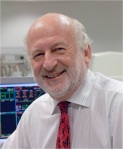Links to external sources may no longer work as intended. The content may not represent the latest thinking in this area or the Society’s current position on the topic.
Can science help us get back to the countryside?
Satellite meeting organised by Professor Guy Poppy, Professor Paul Jepson, Professor John Pickett CBE FRS and Dr Michael Birkett
Attending this event
This is a residential conference, which allows for increased discussion and networking. It is free to attend, however participants need to cover their accommodation and catering costs if required.
Attendance is by invitation only. When requesting an invitation, please provide the title of the meeting you are interested in attending, your name, affiliation and a summary of your interest in the subject.
Biographies of the organisers and key contributors are available below and you can also download the draft programme (PDF) . Recorded audio of the presentations will be available on this page after the event.
Participants are also encouraged to attend the related Discussion meeting Achieving food and environmental security – new approaches to close the gap which immediately precedes this event.
Enquiries: Contact the events team.



